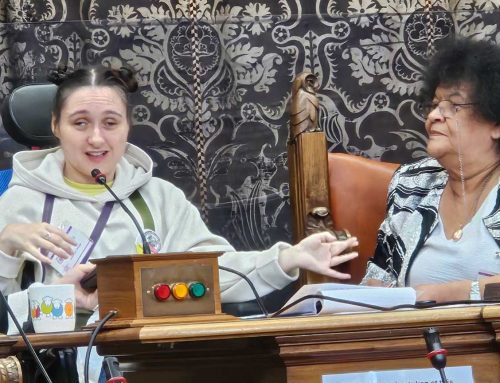Since January, The Advonet Group as a whole and the Independent Mental Health Advocacy (IMHA) service in particular have been doing a lot of thinking and talking about the proposed changes to the Mental Health Act. Some of our IMHA team and their manager have taken part in local and regional consultations, for example through Forum Central.
As well as national consultations, we have also made our voice heard through the Leaders in Advocacy Group. The proposed changes would possibly see fewer people receiving care and treatment from acute services in hospital settings.
The ambition is for more care and treatment to be provided in the Community; although there is no indication how and when this will be funded. This will potentially have an impact on how we provide our Advocacy services.
While it is positive that advocates will be more involved in more aspects of the lives of community and detained patients, it is concerning there may not be money attached to that work, so current resources will be squeezed and quality challenged.
Not explicit enough
Much of the White Paper is not explicit enough for us to fully understand or to meaningfully comment on. For example, it requires: “Involving patients in planning their care and treatment “enhance opportunities to challenge treatment decisions”.
Currently, this is exactly what IMHAs already support their clients to do. This is already a “right” under the Mental Health Act. What will this mean in practice?
It also instructs to (treat) “The person as an individual – making sure patients are viewed and treated as rounded individuals.” What is a “rounded individual”? More specific definitions would be helpful.
Another concern is the statement Patients will have the right to appeal to the 1st tier tribunal more. How will this work when the tribunal service are already behind in hearing appeals?
We are unsure also what it means when it states: “Patients will get to choose their nearest relative and be able to change when they chose to do so.” What happens when this is applied to acutely unwell patients, who will be responsible for ensuring the nearest relatives rights under the Mental Health Act are adhered to?
Finding a place
So, we offer a qualified welcome to the legislation. It finds a place for advocacy (including a desire to regulate it) and seems to want mental health care to be very much to be more person-centred, more about enabling recovery and better able to serve people from diverse cultural backgrounds.
However, it leaves many questions unanswered and without those answers (and the promise of increased funding for implementation), our welcome cannot be more fulsome.












